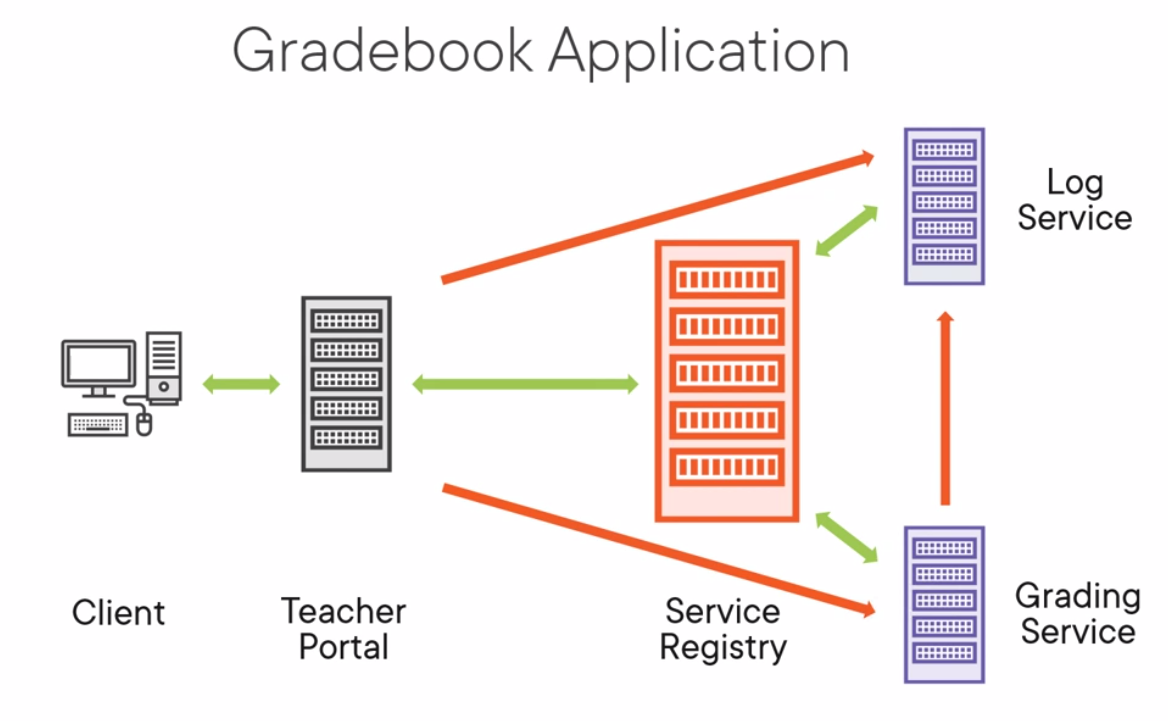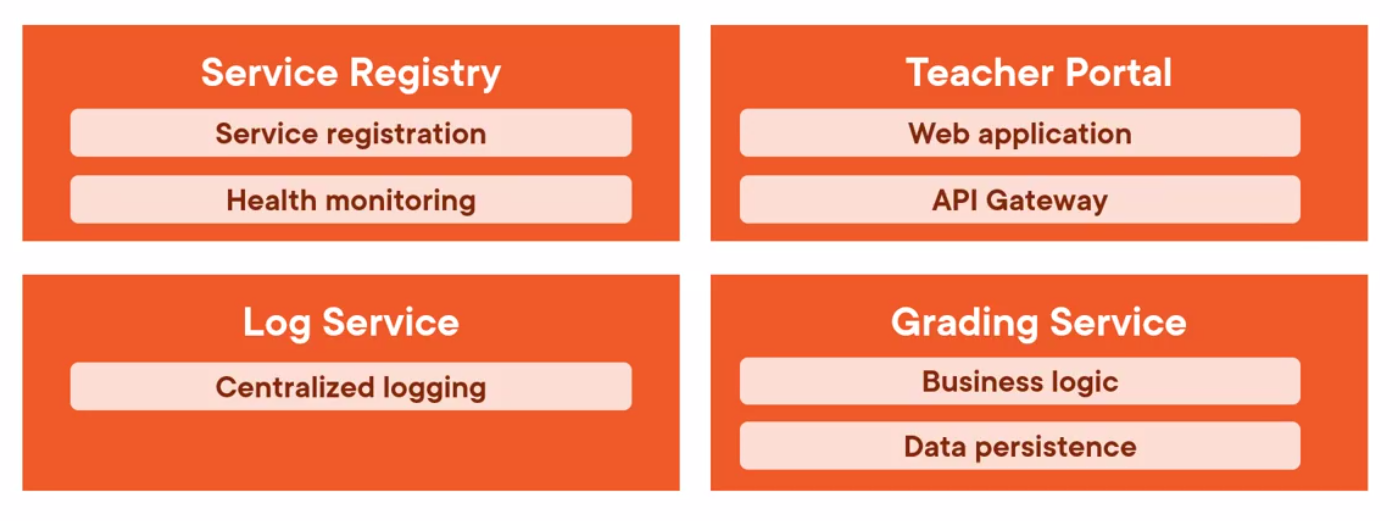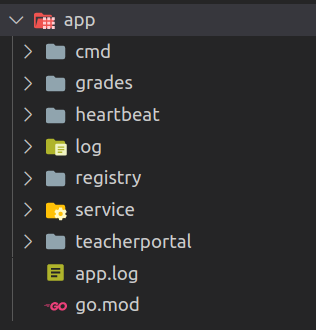Distributed Applications with GO
Elements of a Distributed System
Characteristic
Four aspects might be
- Service Discovery
- Load Balancing
- Distributed tracing and logging
- Service Monitoring
Type of Distributed System
- Hub and Spoke (Satélite approach)
- Advantages Good for load balancing and logging
- Disadvantages Bad to single point of failure. Hub is complex due to responsibilities
- Peer to Peer where each communicate directly
- Advantages No Single point of failure. Highly decoupled
- Disadvantages Service discovery and Load Balancing hard
- Message Queue System where services get work from the queue
- Advantages Easy to scale, Persistence for disaster
- Disadvantages Single Point of failure (message queue), hard to configure
- Hybrid system (none of the above)
- This might will have advantages and disadvantage of both
Architectural Element
These are the aspect you may want to consider
- Languages
- Frameworks (Recommended Go-Kit and Go-Micro)
- Transports
- Protocol
Sample App
The sample app is a hybrid app using GO

This is the components to build

Introduction
I do not usually go through large portions of code but I thought it might be useful to look at the sample code and comment on the topic and the relationship with GO as a language.
Project Structure
The project structure was basically a root folder with a cmd directory holding the main.go code for each binary. From there there is one folder for each component.

Log
Cmd
Client
Server
Comments for the code
This creates an instance of a custom log type, a handler and a function to write to the file.
- Run
Creates a custom log file using the standard log package
- Write
Writes data to the stream
- RegisterHandlers
Registers the "/log", reads the data and writes the message
The Code
package log
import (
"io/ioutil"
stlog "log"
"net/http"
"os"
)
var log *stlog.Logger
type fileLog string
func (fl fileLog) Write(data []byte) (int, error) {
f, err := os.OpenFile(string(fl), os.O_CREATE|os.O_WRONLY|os.O_APPEND, 0600)
if err != nil {
return 0, err
}
defer f.Close()
return f.Write(data)
}
func Run(destination string) {
log = stlog.New(fileLog(destination), "", stlog.LstdFlags)
}
func RegisterHandlers() {
http.HandleFunc("/log", func(w http.ResponseWriter, r *http.Request) {
msg, err := ioutil.ReadAll(r.Body)
if err != nil || len(msg) == 0 {
w.WriteHeader(http.StatusBadRequest)
return
}
write(string(msg))
})
}
func write(message string) {
log.Printf("%v\n", message)
}
Cmd
Service Registry
Service Registration
- Create Web Service
- Create Register Service
- Register Web Service
- Deregister Web Service
Service Discovery
- Create Grading Service
- Request Required Service On Startup
- Notify when Service Starts
- Notify when Service Shutdown